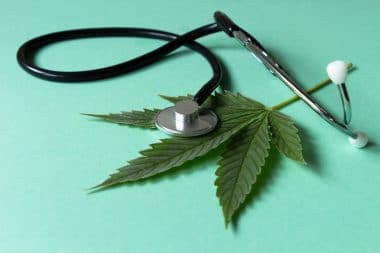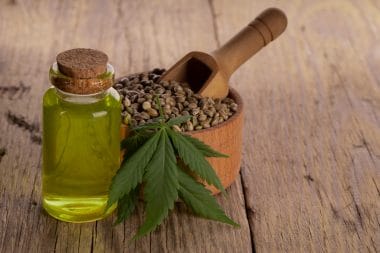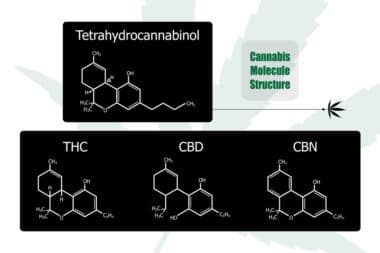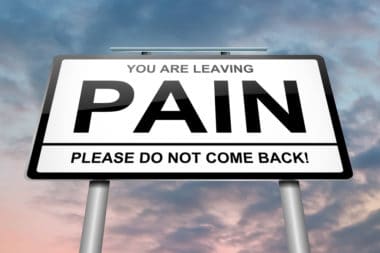With the rising popularity of the CBD like those found at Avida CBD, more and more people are looking to benefit from this amazing cannabinoid. With its widespread use, many questions linger on the proper use of CBD. Much in the way of medical research has yet to establish guidelines on its use.
Questions pop up frequently from among new users is that of CBD dosage:
- “What dosage of CBD is right for me?”
- “How do I find out my starting dose?”
- “Will I get the correct dosage using a CBD Oil?”
Many have asked these questions and we’ve compiled a comprehensive guide to safely dosing CBD.
We’ll review the basic science, research on CBD dosage, and practical tips on how to get that dose just right. Once you’re done with absorbing all our useful tips, you may very well be the dosage savant the CBD community needs.
The Science of CBD
The Cannabis plant has been the subject of much study and research over the past several years. There are over 60 active compounds called cannabinoids within the Cannabis plant and the most prominent of these is the cannabidiol or CBD.
CBD is extracted from the hemp strain taken from the Cannabis plant. It is non-intoxicating because of the absence of tetrahydrocannabinol (THC); this is the constituent found in marijuana that causes the psychoactive and addictive effects. CBD, on the other hand, is believed to create a slew of beneficial effects through the endocannabinoid system.
The Endocannabinoid system (ECS) is one of the body’s modulating systems with complex interactions with the central nervous system. It plays an important physiologic housekeeping role within the body in relation to inflammation, mood, or stress. It is believed to contribute to regulating certain disease conditions such as anxiety, gut homeostasis, and even long-term inflammatory conditions.
Full-Spectrum CBD Products and the Entourage Effects
Phytocannabinoids pertain to plant-derived cannabinoids such as CBD. These are being investigated for their potential for use as therapeutic options for their effects on the ECS. CBD has a complex interplay between the receptors involved in the ECS resulting in significant health benefits.
Though CBD is the major constituent of hemp and frequently isolated for CBD products, some extraction procedures take advantage of full-spectrum cannabinoids. Full-spectrum products take advantage of not only the CBD but also the other active cannabinoids in hemp.
Together, these constituents all synergize to produce a more pronounced effect on the body. This is famously termed the “entourage effect” and most people attribute it to these components working together for a more well-rounded CBD experience.
CBD and the Potential Health Benefits
With the scientific community backing it up, CBD rose to prominence and became a topic of much interest for its potential role for medical use. This increased interest led to a pivotal moment in 2018.
The Food and Drug Administration (FDA) had finally approved the use of a CBD drug in the treatment of persistent epilepsy syndromes. This drug was called Epidiolex, and it remains as the only FDA-approved CBD product for medical use in the market.
Interest in using CBD in the medical field continues to increase. Many pilot studies have since investigated the potential benefits of CBD on small groups of patients with different medical ailments. In 2017, Italian researchers conducted a review of all available CBD research and identified medical conditions for which there was a potential benefit. It lists a few of these medical conditions:
- Anxiety
- Depression
- Infections
- Diabetes
- Cardiovascular disease
They also found CBD to have a potential role in the treatment of addictive behaviors. Canadian researchers in 2017 conducted a review of the effects of CBD on human addiction behaviors.
Their investigation revealed how CBD showed benefits for patients with cannabis and tobacco addictions. More research is needed to substantiate these claims, but so far, these findings have promising implications for the future of CBD in these health issues.
Though these findings are promising, extensive studies have yet to substantiate these claims through robust and ethical human trials. However, one cannot discount the merits of these smaller studies. It’s all a matter of discernment on the consumer’s part to see for themselves what CBD offers.
Choosing Quality CBD Products
Being cautious when purchasing your CBD products online is important.
Make sure the CBD products you’re looking to purchase raw ingredients are sourced from 2018 Farm Bill compliant farms. It’s also important to make sure that the CBD products you are getting are 3rd party lab-tested.
What is the recommended dosage for using CBD?
With a fast-growing CBD market, the body of research around this product continues to expand. Many human studies are underway to determine the dosage of CBD for various medical conditions.
In the current research, the widely recognized dosing recommendations pertain to the CBD-derived anti-epileptic drug Epidiolex. The body of research surrounding this drug is arguably one of the most thorough undertakings ever done for advancing CBD as a therapeutic option, and many prospective studies would do well to follow suit.
This drug is used for persistent epileptic seizure syndromes such as Lenox-Gastaut and Dravet. The starting dose for Epidiolex is 2.5mg/kg of body weight taken twice a day. After one week, the dose can be increased to 5mg/kg of body weight for a total daily intake of 10mg per day. These adjustments are made depending on the perceived effects on those taking this drug.
The Epidiolex dosing recommendation is an important example of CBD dosing on the whole. In the absence of stringent FDA regulations and sufficient high-quality research for other CBD uses, the dosing for Epidiolex provides a clear framework for how you should approach your own CBD usage.
How do you know the right dose for you?
Finding out the right dose for you is an exciting journey of self-discovery. In the absence of any one-size-fits-all recommendation, there is a lot of room to determine just the right dose while practicing judiciousness with the CBD product.
A good first step is to seek professional advice. Talk to your doctor to help you determine the dose and the potential health risks. With all the medical evidence coming out the past few years, doctors are now feeling the health impact of CBD among their patients. There is a pressure for them to be well-versed in this new therapeutic frontier.
Seeking physician advice is especially important if you are taking certain medications. CBD is known to interact with some drugs that are metabolized in the liver. Give yourself that extra buffer of safety and consult with a CBD-savvy doctor first.
Because CBD is still in its relative infancy, not much in the way of evidence is available regarding adequate dosing of the products available in the market. Even a well-trained physician may not be well informed in making that decision for you. In that case, you may need to determine the correct dose for you.
Factors Affecting CBD Dosing
Making an important decision on the right dosage requires you to know what factors play into this aspect of CBD use. The following factor should be part of your considerations when determining the dosage: (1) body weight, (2) condition being treated, (3) individual response to CBD, and (4) concentration of CBD product. We’ll go through them one by one so you’ll have a logical idea of how the CBD dose works within your body.
Bodyweight is an important determinant of dosage not only for CBD but for drugs. In pharmacology, bodyweight is frequently used as a basis for determining appropriate medication dosage, especially in children. The premise of this is governed by the pharmacological principle, the volume of distribution. This refers to the volume of a drug needed to reach drug levels necessary for it to be equally distributed in the entire body.
The greater the weight of a person, the greater the amount of CBD that will be needed to reach a sufficient volume in the body for an apparent effect. This is the same principle that’s used to determine the correct dosage for epileptic patients with the use of Epidiolex.
Identifying the condition being treated is also important. Such as with Epidiolex, there is a pre-determined dose to address the problems of epilepsy. The dosing may differ from conditions such as anxiety, chronic pain, or irritable bowel syndrome.
In the same way that the beneficial health benefits of CBD have yet to be set in stone, so too are the various responses of unique individuals to CBD. Every person will have different body chemistries, so much so that no two endocannabinoid systems are ever the same. Certain individuals will experience the effects of CBD with just the minimum dose, whereas others will require almost three times more.
Individualizing the dosing processes is very important as no two bodies will be exactly alike. Understanding these complex processes and applying them to great effect through determining the dose that works for you is all part of the fun in using CBD.
Determining Your Dosage
Establishing your baseline dosage for your own use is a matter of self-determination.
In the absence of FDA-approval for most CBD products in the market, there is no official recommended dosage for CBD use. This is due to the absence of large, high-quality studies investigating the correct dosage of CBDs.
In the absence of established dosing regulations, you may need to start your own dosing regimen. When determining your dose, a “less is more” approach is recommended. Start with a small dose, then increase your dosage depending on your perceived effects.
The recommended starter dose can range anywhere from 20—40mg/day. As you go along, you can increase 5mg per day and increase or taper depending on how your body is responding to the CBD. It is important therefore to keep track of how much CBD you’re taking and whether symptoms are getting better. Using notes or recording your doses will help you in getting that accurate assessment of what works for you.
Though it’s easy to recommend these standard values, it may not exactly apply to other forms of CBD. What are the other forms of CBD and how do you determine the exact dosing?
What are the methods of administration for CBD?
The market is filled with various CBD products that it may overwhelm a relative newcomer.
There are 2 common methods for using CBD: (1) Oral ; (2) Topical.
Oral
Oral CBD is the slowest route of administration and accounts for the longest duration of effect. Oral products may come as either oil, tinctures, gummies, capsules, or even powder. These products usually take any time between one to six hours to reach its maximum concentration in the body. If you’re looking to have prolonged effects of CBD during the day, it’s best to use oral products.
Another option of using CBD products orally is through applying it under your tongue. This is called the “sublingual” administration. It takes advantage of the vast capillary network located underneath the tongue in order for a dose of the CBD product to avoid what’s called a “first-pass metabolism” compared to if you ingest the product. This results in a larger amount of CBD reaching your bloodstream and potentially leading to faster onset of effects.
Most oral products like oils may be taken using this sublingual approach to improve the absorption of CBD. Remember that the dosage refers only to how much you’re taking, but it does not reflect what reaches your bloodstream. Holding the CBD product under your tongue or swishing it around your mouth prior to swallowing is a method most users used to increase the effective dose.
As a rule of thumb, the informal recommendation is to hold the CBD oil under your tongue for about 15-20 seconds before swallowing the liquid. This is enough time to bathe the capillaries under your tongue to increase the absorption of the CBD.
Topical
Topical products include balms or creams. The mechanism of action of these products involves diffusion across the skin to local areas. It exerts most of the effects on the dermis and the adjacent structures, such as the muscles or nearby mucosal membranes.
The effects of topical products can be unpredictable and will have various effects on different users. For that reason, it is recommended to take these products with either an oral or inhaled CBD product.
Specific Dosage Considerations for Various CBD Products
With all the various products available, you will need to pay attention to the specific formulations to determine dosing.
CBD Oil products come in different strengths. From 50mg, 250mg, 500mg, or 3,000mg strengths in 30mL bottles. There are 30 servings per bottle and one serving is one full dropper amount to 1mL. The amount of CBD per serving varies with the CBD Oil strength.
For example, a 250mg strength CBD oil divided into 30 servings will cause 8.5mg of CBD per full dropper. You can drip the full content of 1mL droppers into an average of 20 drops, meaning each drop for this oil strength will have 0.43mg per drop. We can apply the same math to stronger CBD oils so you can come up with the ideal dosing based on the recommendations here.
Determining the dosage of CBD in your vape liquid follows a similar process. Vape Liquids are also sold in 250mg, 500mg, or 1000mg strengths in 30mL bottles. Each bottle has 30 servings of full droppers amount to 1mL each. If we take a 1000mg strength tincture, we divide the total dose by 30mL and arrive at 33mg. This is the amount of CBD in 1mL full dropper.
Using these methods, you can have accurate measurements of exactly how much CBD you’re taking it. You can then gauge from there whether you increase or decrease your dose depending on the desired effect you’re looking for.
What are the side effects to watch out for?
If you’ve been following so far, many studies have established the safety profile of CBD. Even with high doses of up to 1500mg/day over a lengthy period, they have found CBD to be safe with little side effects.
Studies reported that minor side effects such as decreased appetite, fatigue occurred in up to 36% of patients.
More recent studies have highlighted the importance of how CBD can interact with other medications. In a 2017 update on the safety and side effects of CBD, it was found to have the potential to interact with the liver enzymes. When taken with medications, it can cause alterations in drug levels.
If you are taking any medications, the importance of consulting with a doctor first cannot be stressed enough. CBD interactions with certain drugs can have potential health risks and you should not take a leap of faith without first consulting with your doctor.
Final Thoughts
We cannot overstate the rise of CBD to therapeutic superstardom. With a booming industry and high scientific interest, CBD has the potential to be a wonder supplement of the future. But with such great potential, so too comes great responsibility.
Discerning good quality CBD in the market, understanding the proven and potential health benefits of CBD, knowing the unique methods of taking CBD, and adjusting the right CBD dosage for your own needs are all necessary skills for any well-meaning CBD user.








Reply